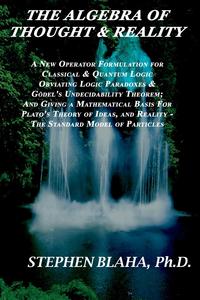This book describes a new formulation of Logic. It appears to resolve all of the paradoxes that have beset Logic since the 19th century as well as the Liar paradox that dates from early Greek times. It also reduces the importance of Godel"s Undecidability Theorem by showing how to generally, and consistently, exclude undecidable propositions from a mathematical-deductive system or its corresponding calculus. The reduced system or calculus then is fully "decidable" - all propositions in the system are either provably true or false. We thus view paradoxes and other undecidable statements as the result of an inadequate (c-number) symbolic/linguistic formulation of Logic that is remedied by an operator (q-number) formulation of Logic. Remarkably the basis of this new formulation is in the general Measurement Theory of quantum phenomena. The new formulation of Logic uses Quantum Measurement Theory to create an operator (q-number) based Logic using Godel numbers throughout for signs (symbols). Thus our deepest knowledge of physical reality is the source of a new, paradox-free, operator formulation of Logic, which we call Operator Logic. (Operator Logic is not related to Boolean algebra.) Previous formulations of Logic were based on human languages or "intuition" or "everyday physical experience" or "ideal concepts of the human mind" or some combination thereof. Our formulation is rooted in the deepest known bedrock of the physical universe. Thus we achieve a unique foundation for Logic of the greatest depth and magnitude. After developing Operator Logic we show how Plato"s theory of Ideas and Reality, and their mathematical relation, is mirrored by the development of the Standard Model of Elementary Particles from the mathematical framework of Operator Logic. This book therefore can be viewed as the precursor of the derivation of the Standard Model given in Blaha’s book A Complete Derivation of the Form of the Standard Model with a New Method to Generate Particle Masses. Together these books provide an implementation of Plato"s qualitative theoretic framework, which in this author"s view is quite remarkable. This book assumes some knowledge of Logic, matrices, and group theory. Knowledge of Quantum Theory is not required but some knowledge of elementary particles and their interactions is helpful. Quantum concepts are developed as required. Это и многое другое вы найдете в книге The Algebra of Thought & Reality (Stephen Blaha)
The Algebra of Thought & Reality Stephen Blaha
Подробная информация о книге «The Algebra of Thought & Reality Stephen Blaha». Сайт не предоставляет возможности читать онлайн или скачать бесплатно книгу «The Algebra of Thought & Reality Stephen Blaha»
